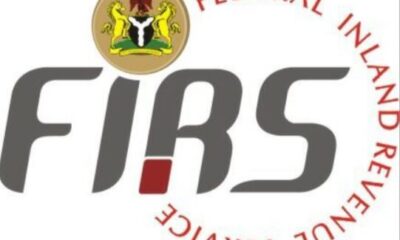News
Conditional Cash Transfer: 283,003 Lagos residents to receive N25,000 from FG

The Federal Government has initiated the training of facilitators for the Renewed Hope Conditional Cash Transfer program in Lagos State, aiming to enrol 283,003 beneficiaries.
Dr. Michael Ajuluchuku, the National Programme Manager of the National Cash Transfer Office (NCTO) in Abuja, expressed during a one-day training in Lagos on Tuesday that the initiative is designed to offer financial relief to vulnerable citizens in the state.
According to Ajuluchuku, the step-down training is structured to prepare facilitators for enrolling the 283,003 beneficiaries in the state.
He demanded payment from the facilitators for ensuring a rapid enrollment of beneficiaries, completing the circle according to the initial plan.
He mentioned that the project will prioritize households in both rural and urban areas, specifically targeting those classified as poor and vulnerable across the country.
- “The design of the scale of NASSP-SU intervention has two components, Shock Responsive Social Protection (Urban), and Shock Responsive Social Protection, (Rural) that is aimed at providing N25,000 for three months to beneficiaries amounting to N75,000,” he said.
Selection Process for the Cash Transfer
Speaking about the selection process, Ajuluchuku highlighted the National Social Safety Net Project’s two program-implementing units. The National Social Safety Net Coordinating Office is specifically tasked with gathering data on the poor and vulnerable across the country.
- “Basically, their mandate is to generate data of the poor and the vulnerable.
- “The second programme implementation unit is the National Cash Transfer Office, which is mainly responsible for delivering the intervention.
- “To us at NCTO, we mine these two data of the poor and vulnerable from the National Safety Net Coordinating Office.
- “The criteria are that the beneficiaries must be poor and vulnerable and must fall between the poverty line as established by the Federal Government so that is how these data is gotten for intervention,” he said.


 News22 hours ago
News22 hours agoNIGERIAN BREWERIES PARTNERS OZA CARNIVAL

 Top Stories10 hours ago
Top Stories10 hours agoTinubu’s Aide Condemns Plan To Reinstall ‘Jesus Is Not God’ Banner In Lekki Mosque

 Top Stories5 hours ago
Top Stories5 hours agoBreaking: FIRS Announces Fresh Recruitment, See Eligibility Criteria, Application Deadline

 News10 hours ago
News10 hours agoPetrol To Sell ₦935/Litre From Today – IPMAN

 Top Stories10 hours ago
Top Stories10 hours ago2025 Budget Cannot Address Nigeria’s Economic Challenges – Atiku

 Entertainment10 hours ago
Entertainment10 hours agoI will be more influential in Nigeria than UK – Tobi Adegboyega

 News10 hours ago
News10 hours agoPresident Tinubu’s reforms not responsible for food stampedes – FG

 Top Stories7 hours ago
Top Stories7 hours agoPrimate Ayodele’s Prophecies For 2025







